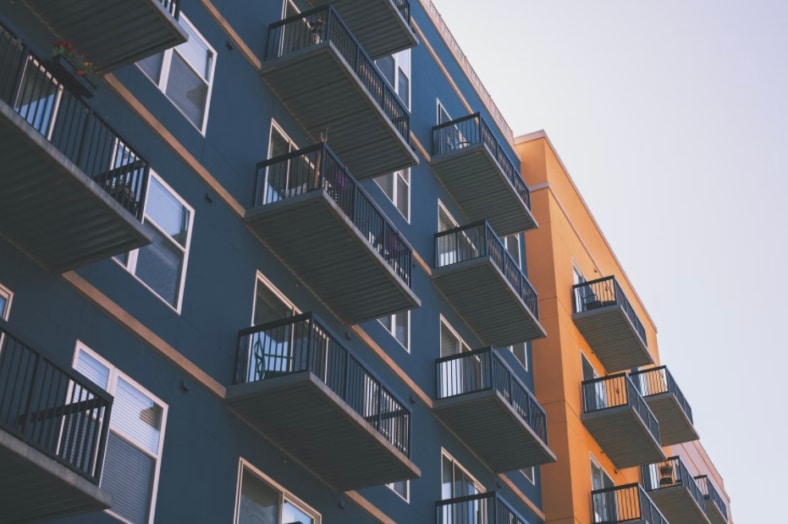Lease Extensions
Trust our freehold and leasehold experts to guide you through your lease extension options and make the best choice for you and your property. With years of experience helping leaseholders take control of their buildings and leases, we can help you every step of the way.
What is a Lease?
In the United Kingdom, property is sold and classified as either freehold or leasehold. A lease is a document setting out which property a ‘lease’-holder owns, for how long, any ground rent or service charge payable, and the terms under which the property is held. It essentially governs your relationship with your freeholder, and is vital to your property ownership.
A lease extension is a process that allows you to extend the length of your lease, usually for an additional 90 years. The terms of this new lease will be set out in a separate document known as a ‘deed of extension’, and will be overseen and executed by your freeholder.

Why Would I Extend My Lease?
Lease extensions are usually sought to avoid losing the right to occupy your leasehold property entirely, and to stop the value of your property from reducing to nothing. If you own a leasehold with less than 80 years remaining, you will find it difficult to get a mortgage, and as your lease reduces you get closer to the day when you will have to hand the keys back to the freeholder and lose your flat entirely. With an extended lease, you secure your position and ensure your property stays more valuable for longer.
There are a number of reasons you might want to extend your lease:
- If your lease has below 85 years left to run, it’s highly recommended that you extend your lease ASAP. You will likely find it difficult to get a mortgage yourself, and if you try and sell your flat it won’t achieve market price.
- If your lease is below 150 years, we have noticed the market tends to devalue your property. Extending your lease gives you greater control over your property, or you could look at buying the freehold to give you a say in how it is managed and ensure that any major repairs or works are undertaken in accordance with leaseholders’ wishes.
- If your lease is below 999 years, or you don’t have a Share of Freehold, many buyers are now aware of the problems of a reducing lease and lack of control, and a 90 year lease extension won’t remedy this, so we highly recommend you look at buying your freehold.
My lease is over 100 years – why should I bother?
- Because your lease is long, your premium will be low
- You already compensated the freeholder for his losses… and you only got a 90 years extension! Why not use the opportunity to:
- get a “share of freehold” = this is easier to sell
- get a 999 year lease = never have to think again about lease extension
- be able to transfer your property to your family members (inheritance for example) without them needing to cope with expensive lease extensions one day in the future
How Can I Extend My Lease?
So, you know the what and the why. But what about the how of residential property lease extensions? Well, there are two main ways you can extend your lease:
A formal (or statutory) lease extension
The statutory lease extension process involves doing a valuation and brief legal analysis of your lease and title, serving a formal notice requesting a 90 year lease extension from your freeholder.
This notice must be in the proscribed form as stipulated in the 1993 Leasehold Reform, Housing and Urban Development Act. The freeholder has a set length of time to respond, and the act governs the process and conditions if a lease extension is refused.
By opting for the formal process, your premium negotiations will be governed by statutory rules, and you will more likely end up with a fair result. As long as you qualify for a statutory lease extension, the freeholder cannot refuse, but the fees will likely be slightly higher. This is generally more than outweighed in the saving on the premium.
An informal lease extension
This can be a riskier process, and there have historically been no laws governing informal lease extensions, though since June 2022 your freeholder can’t ask for any additional Ground Rent. In an informal lease extension, you would simply approach your freeholder (either by writing a letter, email, or calling them) and inform them you would like to extend your lease and see if they would be willing to agree to something outside of the Act.
By opting for the informal route, you will likely have to pay a higher premium. However, as there are no laws governing this type of extension, it may be easier to get your freeholder to agree to a voluntary lease extension – especially if they stand to make more money!
So which method is right for you? Ultimately that depends on your circumstances, but both have their pros and cons, an approach involving both may even be pursued for maximum benefit. If you’re still not sure what to do, why not talk to a lease extension specialist like us about your options? We can help evaluate your current situation and offer professional advice on how best to proceed.

How Much Does it Cost to Extend My Lease?
There is no one ‘usual’ lease extension price, as there are a number of different factors that will impact how much it costs to extend your lease. Here are three core cost elements to consider when extending your lease:
- The premium payable: You can use a lease extension calculator for this, but pricing will depend on the value of your property, how long you have left on your lease, and a number of other factors.
- Your own professional fees: Your own fees, such as a lease extension solicitor or surveyor, will also have an impact on overall costs. These are likely to vary from firm to firm, and will depend on the scope of your lease extension.
- The freeholder’s reasonable costs: Your freeholder will normally be responsible for paying their legal fees, so you won’t need to factor these into your costs. However, if the lease extension is not granted and the case goes to court, you may be liable for any reasonable costs incurred by your freeholder in defending the claim.
How can TFC help?
At The Freehold Collective, we understand the complexities and challenges of extending your lease. Our team of experienced professionals have been through the process countless times, giving us as experts the means to guide you through each step of the way.
Whether you are looking to opt for a statutory or informal lease extension, or even purchase your freehold to make the whole process easier, we can help you navigate your journey quickly and easily.
With our years of experience and proven expertise, we are the go-to team for lease extensions and freehold purchases.
If you’re looking for a lease extension within a small block of flat or a converted house, then please get in touch with our partners Homehold.
Lease Extension or Freehold Purchase?
TFC can walk you through the pros and cons of both options, and help you decide which is the best for your personal circumstances. While there is no right answer for everybody, making an informed decision about the best ways to extend your lease and/or purchase the freehold of your property will ultimately lead to a smoother overall process.
With our years of experience in helping homeowners from all backgrounds make well-informed decisions about their property, TFC is one of the leading experts in lease extensions and freehold purchases.
We can help you weigh up the benefits of both options, from exploring how much it costs to extend your lease to assessing potential savings from purchasing the freehold outright.
Free Consultation
We’d love to hear from you. Send us a brief message on any leasehold or freehold matter, and we’ll be in touch to book your free initial consultation.
Our free, no obligation, consultation will include:
- A brief review of the Land Registry information relating to a flat or building
- A discussion around the specific problems faced by a leaseholders
- Feedback based on our review Land Registry records and other information relating to your specific flat or building
- Advice on your options, pros and cons of the the best way to solve your problems and realise additional long term benefits of your property
